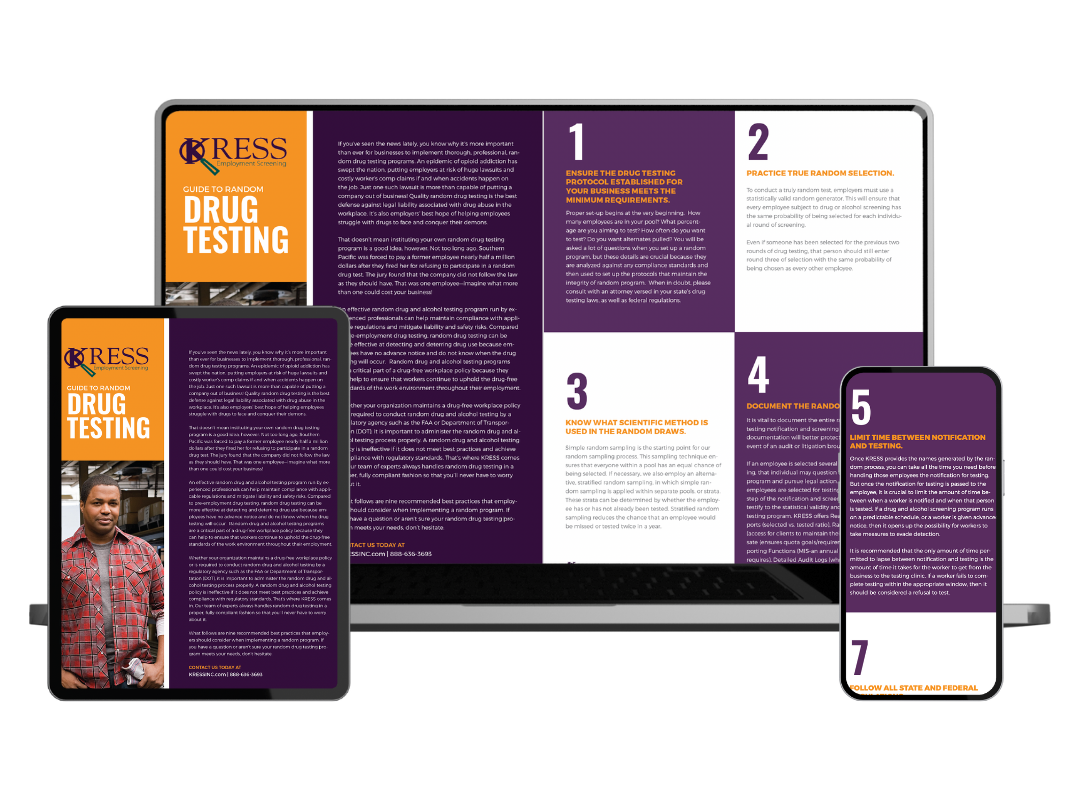The Role of the Medical Review Officer (MRO)
Medical review officers play a crucial role in the drug and alcohol testing process. They are responsible for reviewing all drug test results to ensure accuracy, as well as handling any issues or questions from employees. Their knowledge and expertise in testing procedures and regulations make them an essential part of the process. MROs also act as a neutral third party, providing unbiased and confidential results to employers.
Implementing a Drug and Alcohol Testing Program
In order to maintain a healthy and safe workplace, various forms of drug and alcohol testing may be implemented. These can be tailored to suit the specific needs and circumstances of the workplace.
Consider the following when designing a drug testing policy:
Zero-Tolerance Policies
Employers may enforce zero-tolerance drug policies, even in states where marijuana is legal. Policies must be clearly communicated to employees and applicants to avoid compliance issues.
THC Testing Restrictions
States like California, Nevada, and New York limit the ability to test for THC or take adverse actions based on positive results, except for safety-sensitive roles or federally regulated positions.
Federal Compliance
Employers in federally regulated industries (e.g., transportation, national security) must follow federal drug testing guidelines, which classify marijuana as a Schedule I substance.
Company Policy
A written drug and alcohol screening policy is key when creating a safe and substance-free workplace. This company policy serves as a guide for both employees and management, outlining the company's stance on drug and alcohol use, the procedures for testing, and any consequences for policy violations.
It should be written in clear, accessible language and should be readily available to all employees. Employers must adapt their drug-testing policies to meet the legal framework of each state, ensuring consistent and compliant practices. Regular reviews and updates of the policy ensure its continued relevance, reflecting any changes in legislation or the company's circumstances.
Random Drug Screenings
Random drug testing is an effective tool in deterring employees from using illegal drugs and alcohol during work hours. It also provides a fair system for all employees, as everyone has an equal chance of being selected for testing.
Post-Incident Drug Testing
In the event of a workplace accident or injury, post-incident drug testing can determine if substance abuse was a contributing factor. This helps companies identify potential safety hazards and protects them from liability and potential legal repercussions.
Reasonable Suspicion Drug Screening
If an employee's behavior or performance indicates possible substance abuse, reasonable suspicion drug testing can be conducted to confirm any suspicions. This method must be carried out with proper training and documentation to avoid discrimination or false accusations.
Periodic Drug Screening
Periodic drug testing is a proactive approach to ensure employees comply with company policies and maintain a safe work environment. This type of testing can be done on a scheduled basis or randomly throughout the year.






















